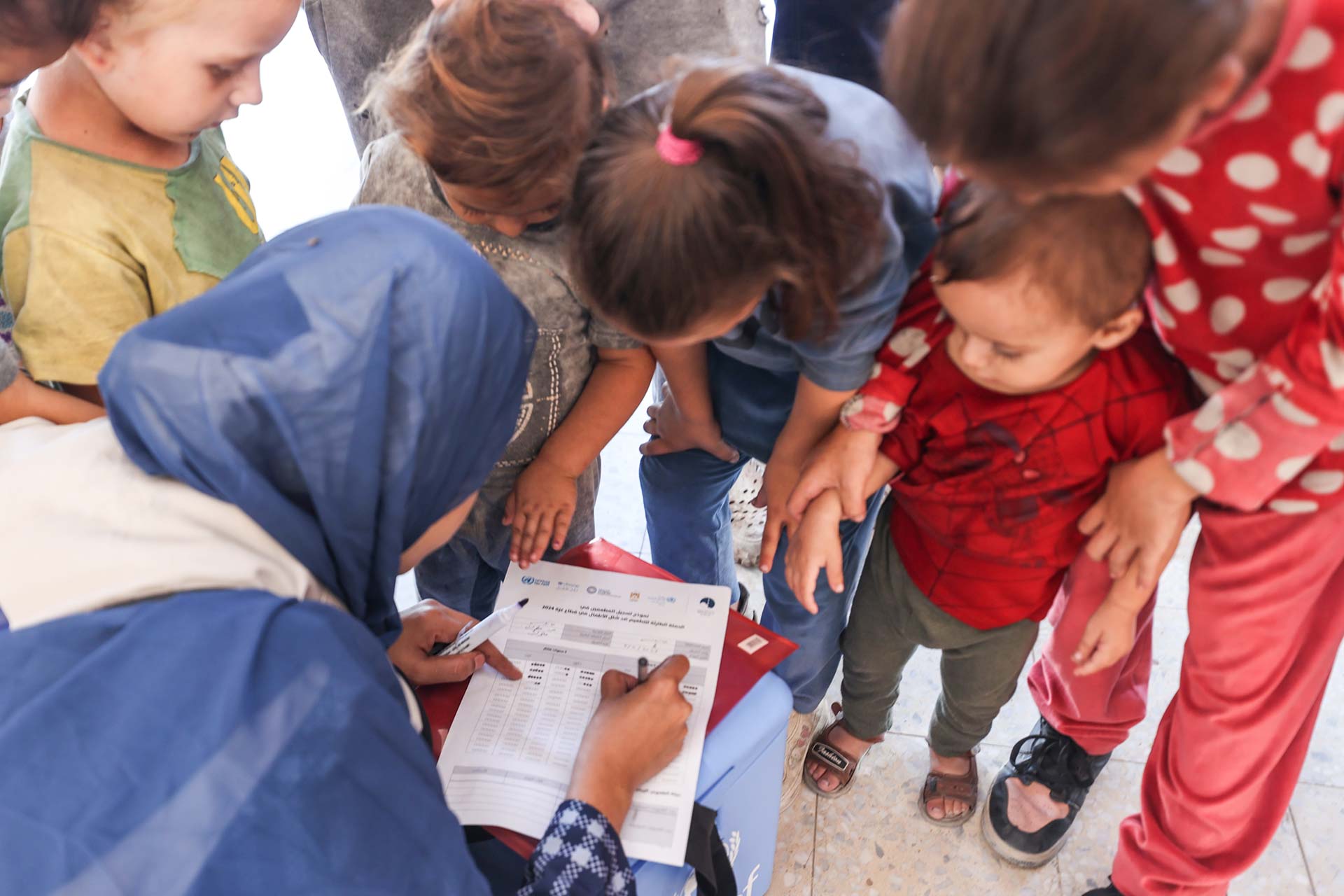
13 October 2025 – Countries of the WHO Eastern Mediterranean Region (EMR) continue to face persistent challenges in accessing reliable, timely and actionable health data. In many settings, surveillance remains fragmented, uncoordinated, paper-based, disease-specific, and donor-driven—conditions that delay detection and weaken rapid response. Drawing lessons from the COVID-19 pandemic, the Sixty-eighth session of the WHO Regional Committee for the Eastern Mediterranean adopted resolution EM/RC68/R.3 in October 2021, establishing a regional strategy for integrated disease surveillance (IDS) to overcome data fragmentation. The strategy provides a common framework for governance, operations, quality assurance and monitoring and evaluation, with the objective of improving surveillance performance and strengthening public health intelligence across the Region.
To translate this commitment into practice, WHO’s Regional Office for the Eastern Mediterranean (WHO/EMRO) formed a cross-departmental IDS Technical Working Group (TWG) that brings together the Science, Information and Dissemination team, the Department of Communicable Diseases, the Department of Noncommunicable Diseases, the WHO Health Emergencies Programme and the Polio team. Through this structure, EMRO provides ministries of health with strategic guidance and practical tools, alongside specialized support in governance, advocacy, technical guidance, digital platforms and laboratory services. This coordinated support extends to day-to-day operations, including the development of human resources and the design of standard forms and tools that enable interoperable routine and event-based surveillance.
Progress is visible at country level. Fourteen countries report establishing multisectoral national governance bodies for surveillance, and twelve—Afghanistan, Iraq, Kuwait, Lebanon, Libya, Morocco, Pakistan, Qatar, Somalia, Sudan, the Syrian Arab Republic and Tunisia—have developed IDS roadmaps and identified national priorities to guide implementation. These governance gains are being matched by investments in workforce. Field Epidemiology Training Programmes (FETPs), a core component of IDS operations, are being implemented in 16 EMR countries as of February 2025 to strengthen investigation, analysis, and response capacities. The Region also applies the Competencies for One Health Field Epidemiology (COHFE) framework, defining the knowledge, skills and competencies required for field epidemiologists to operationalize the One Health approach within national IDS systems.
Digital transformation is advancing in parallel. The IDS Digital and Data Subcommittee has developed a digital readiness assessment tool to be implemented in Afghanistan, Pakistan, Iraq, the Syrian Arab Republic, and Yemen, providing a systematic basis for guiding investments that modernize platforms, improve data flows and enable interoperability. Complementing this assessment, EMRO is deploying tailored digital packages and piloting innovative solutions, including the application of artificial intelligence to scan large-scale data sources and scientific literature for early signals of public health threats. These efforts are reinforced through collaboration with partners such as the University of Oslo and Resolve to Save Lives.
Partnerships remain central to sustaining momentum. On 16 September 2025, EMRO convened the Public Health Intelligence Regional Engagement Meeting with representatives from all 22 EMR Member States, followed on 17 September by an in-person partners’ meeting of the IDS Governance Subcommittee. Contributors included the WHO Hub for Pandemic and Epidemic Intelligence, the Robert Koch Institute, the UK Health Security Agency, EMPHNET, IGAD, Africa CDC, HISP MENA, GCDC and academic institutions such as the American University in Cairo, the American University of Beirut and the Alexandria Public Health Institute. Discussions addressed governance, financing and technical operations, including information technology systems, human resources, data management and laboratory capacity. The dialogue reaffirmed that multisectoral and transdisciplinary collaboration is essential to build efficient, sustainable, and integrated surveillance systems that strengthen regional preparedness, protect populations and reinforce global health security.
Sustained country leadership, predictable financing and coordinated partner support will be essential to consolidate these gains. WHO/EMRO will continue to work with ministries of health to institutionalize IDS governance, strengthen the surveillance workforce, expand interoperable and secure digital solutions, and embed One Health approaches across routine and event-based systems. Priority will be given to improving data quality and timeliness, reinforcing laboratory and PHI functions, and aligning investments with national roadmaps. Through this sustained, multisectoral effort, the Region can achieve resilient, integrated surveillance that detects threats early, enables rapid, evidence-based response, and protects populations across the Eastern Mediterranean.








